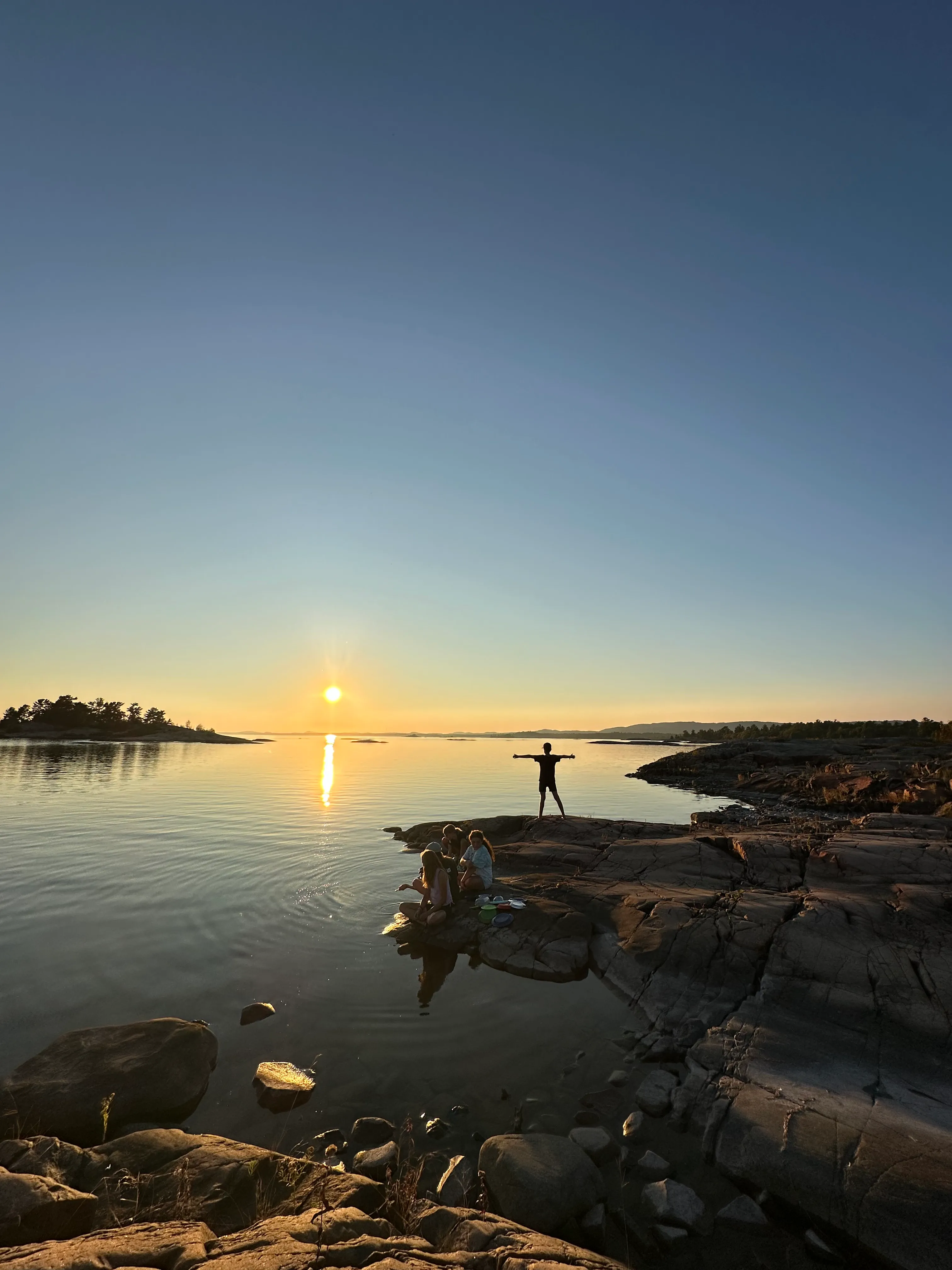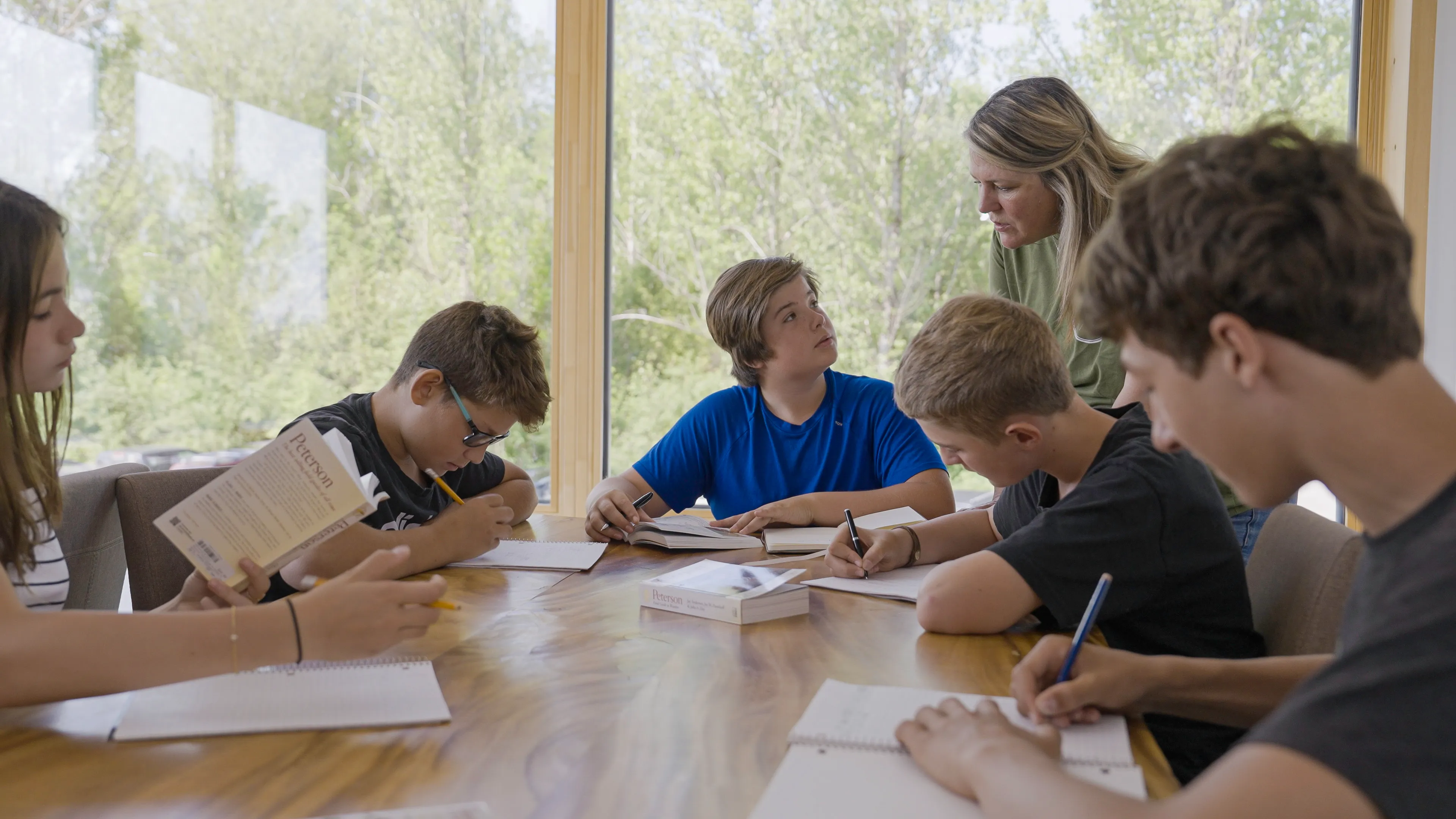We All Need to Work Together to End the Screen-Based Childhood Once and For All


If you haven’t yet dived into Jonathan Haidt’s eye-opening article in the Atlantic, "End the Phone-Based Childhood Now," take a moment to read it.
It's a teaser for his newly released book “The Anxious Generation.” Haidt shines a light on the concerning effects of a screen-saturated childhood. One of the main issues Haidt addresses is that all children are on phones, making it seem like the only way to avoid social isolation is to be on a phone. I feel so sad for this generation and all they are missing out on as a result.
Here at Wilde School, we're incredibly fortunate. Our parents understand the challenges of a screen-centric childhood and actively seek alternatives. We don’t allow phones at our school, and few students own them anyway. Furthermore, I know of no student who is on social media.
But let's face it, staying nestled in our forest is only part of the solution. They won't be in the forest forever, and we need to prepare our children for these unfortunate realities, while coming together as a community to set some norms.
Haidt's article paints a clear picture of the downsides of a childhood dominated by screens. From diminished social skills to decreased physical activity and heightened anxiety, the pitfalls are many.
In our digital age, children are perpetually plugged in, often missing out on genuine face-to-face connections and the joys of outdoor exploration. Traditional schooling with overuse of computers is only compounding this issue.
It was also fascinating to hear him draw parallels between big tobacco and digital media companies, both being complicit in creating addictive products for children.The TDSB shares this sentiment with their recent launch of a lawsuit against major social media companies.
Next time you walk around town or out in public, take note of how glued to phones our youth are, especially teenagers.
Haidt offers two straightforward recommendations for raising children in the digital world:
These guidelines aim to shield our kids from the potential harms of early screen exposure.
At Wilde School, we wholeheartedly endorse these recommendations. Delaying access to smartphones and social media paves the way for kids to develop crucial life skills and maintain a balanced relationship with technology.
However, for this to work, the majority need to be onboard.
Haidt also discusses the value of unstructured play, which is sorely lacking among youth. I often see this firsthand with friends' children visiting from the city who completely lack the ability to engage in free play with my own children.
Unstructured free play is pure magic. It sparks creativity, hones problem-solving skills, and nurtures social development. It's a chance for kids to follow their curiosity, dive into imaginative play, and sharpen their critical thinking.
Research backs this up, showing that unstructured playtime in nature boosts physical health, emotional well-being, and cognitive development.
We see this firsthand during Wilde School’s Screen-Free May challenge, where our students pledge to detox from their screens completely for the month of May. It’s a time to reset their relationship with their devices and find other creative outlets. They often share these outlets with the school at morning circle, and it’s fascinating to hear what they come up with.
Indeed, boredom is one of the greatest gifts you can give your child!
My thinking is that two issues are at play:
Collectively, we need to overcome both factors. We need to start parenting our children, teach them the pitfalls of screens and social media, while simultaneously capping their use of these things. Ignorance is no longer an excuse; the research is quite conclusive, and the long-term effects will permeate throughout our children’s adult lives.
On weekends, some of our Wilde School students who ski at private ski clubs report that many of their friends spend their time, when they aren't skiing, on devices. They complain that they can't connect with them without also being on a device. How sad is that!?
At Wilde, we are fortunate that our community shares similar values, especially concerning screens.
Implementing Haidt's recommendations needs to be a team effort. We need every parent, educator, and community member on board. If only a handful of families adopt these guidelines, we risk leaving some children feeling isolated.
We need to overcome this guilt of feeling the need to solve every problem our children face and trying to program their lives to prevent boredom. Let the children be bored! So, let's come together, share our insights, and craft a collective approach that champions the well-being and growth of every child.
Our rural setting, while beautiful, presents its own set of challenges, making it tricky to organize essential unstructured playdates a teach other's homes due to the distances involved. So, we've come up with a solution - we're beyond excited to unveil our latest offering: the Free Play Club! This after-school gem will run alongside our other enriching clubs, providing a dedicated space for outdoor exploration, imaginative play, and genuine social connections.
The Free Play Club promises a nurturing environment where kids can connect with nature, invent their own games, and forge meaningful friendships. This will run from Mondays to Thursdays, 3:30 to 4:30pm. More details will follow in our weekly email.
In this digital era, it's high time we reevaluate our relationship with screens. Jonathan Haidt’s rallying cry to end the phone-based childhood resonates with Wilde School's commitment to championing unstructured free play.
By embracing Haidt's guidelines, rallying around initiatives like our Free Play Club, and fostering a united community approach, we can empower our children to embrace their innate curiosity, creativity, and social skills.
Together, let's usher in an era where unstructured free play reigns supreme, nurturing resilient, well-rounded individuals ready to thrive in an ever-changing world!
Onwards!
Jeff
---
By incorporating these tips into your daily routine and encouraging unstructured free play at home, you'll provide your children with valuable opportunities to develop essential skills, nurture their creativity, and foster a lifelong love of learning through play.

In a world being rapidly reshaped by artificial intelligence, climate change, and cultural disruption, it’s becoming harder to ignore a simple truth.
Published:
May 27, 2025

Published:
November 3, 2025

Published:
August 13, 2025